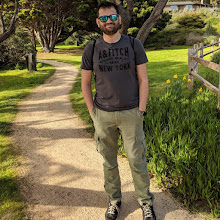Hi All, today I have a various serious issue on discussion here. I am going to talk about the religion and rituals followed in
"O departed one! Be united in the highest heaven with the pitrs and with Yama. Leaving here all your sins, go back to your home. Being endowed with bright luster be united with a new body" is the mantra when the body is consumed to flames.
Ashouchia or a period of un-cleanliness is followed for ten days. An oil lamp is burned continuously and cooked rice is offered on all days. It was believed that this ritual helped the departed to go to his/her new home smoothly.
Now, the soul has to be sent to the Heaven. The process of doing so is known as kriya. It is believed that this process starts on the 9th day after the actual death (nine days symbolizing the nine months of gestation before human birth). The process starts by worshipping of the sun facing to the east. One should ask to free the spirit from all earthly bonding.
It is believed in Hinduism, that the departed soul travels through the pretaloka (the world of ghosts and spirits) to the pitraloka (the heaven or the world of ancestors). On the tenth day the performer makes a sankalpa (holy resolve) and offered pinda (rice-ball).
The Role of Crow:
It is interesting that the crow, much despised bird, becomes very important on the occasion of Pindadana. Crow is supposed to be messenger of Yama, the Lord of Death. Hence, there is a prayer. Master of the ceremony recites, "O Crow! Thou art the messenger of Yama. Please accept this offering (food-pinda) and satisfy the hunger of the departed Spirit that has proceeded to the Abode of Yama."
On the tenth day when the pinda is offered to manes, all wait eagerly for the temporarily holy crow to pounce and partake food. Delay on the part of the crow suggests that the deceased had some unfulfilled wish which was compelling. Often the priest advises the performer to declare there and then to fulfill the last wish of the departed soul. All heave a sigh of relief, when the crow descends or condescends to peck at the food!.
Pindadana relieves a preta (deceased) from the agony of hunger and thirst. Four pindas are prepared. One for the deceased and the three for his paternal ancestors. This rite known as sapindikarana completed the Antyeshti Ceremony.
Lastly, immersion of asthi or remnants of the bones of remains in sacred rivers ensured that a man returned finally to elements from which he took his mortal form. It is believed that when a person dies, the soul assumes three of the five elements (viz., fire, wind and ether), that rise from the dead body while the two more (earth and water) remain below. With the aid of pindas offered daily during the ten days after cremation, the soul assumes yet another form and after the twelfth day performance the soul finally sheds that delicate form as well, and assumes a third body according to the nature of its karma to go to heaven.
